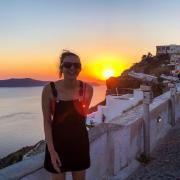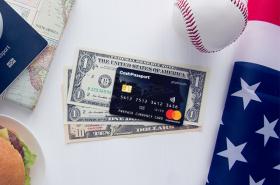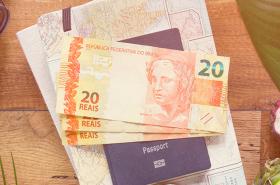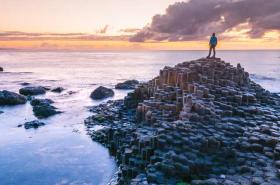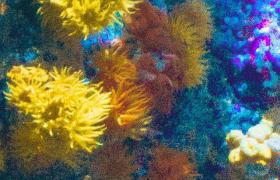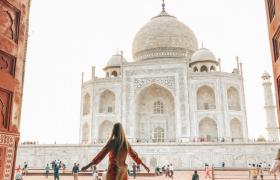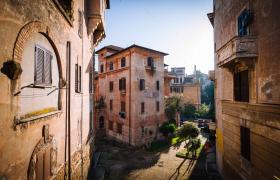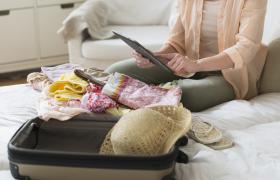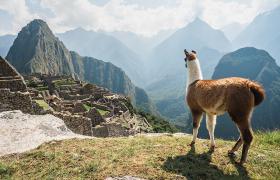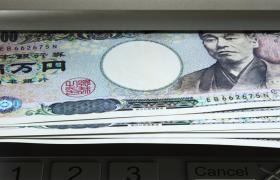South Africa is an increasingly popular destination for Kiwi travellers, especially as the price of flights becomes more affordable.
Known for dramatic landscapes, rugged coastlines and spectacular animal sightings, this gateway to Africa is high on the bucket list for many. Quite often, though, people see the price of flights and immediately disregard South Africa as a holiday option, assuming it is too expensive. This is where they are wrong.
If you're still in the dreaming stages and are wondering if South Africa is the place for you, or have already booked your trip and are keen to get down to budget business, the team at Travel Money NZ have got you covered. We've put together a nifty little travel budget calculator that combines Numbeo data and current exchange rates to give you an idea of how much a trip Cape Town, Krugar or anywhere in between will cost.
Before we just into calculations, let's chat about what is included in a South African travel budget.
What goes into a budget for South Africa?
Transport
Getting to South Africa will be your most significant expense as a minimum 19-hour flight (from Auckland to Johannesburg) is required. Keep an eye on deals and travel expos, and travel outside of peak season (November to March) if you're keen to decrease transport costs.
Once you arrive, there are a few means of getting around South Africa as a whole:
Bus: Major cities and popular towns are connected by a few bus routes serviced by Greyhound, Intercape and Baz Bus (a popular option for backpackers). Baz Bus is your cheapest option, with fares starting around 500 rands for the shortest journey. Greyhound and Intercape have ports across the country and are slightly more luxurious with air conditioning, just remember they are often packed with locals and run a very tight schedule. Buses will often book out in peak season, so this is something to book in advance. Unfortunately, coaches don't service everywhere, so if you plan on going off the beaten track, it may not be the option for you.
Air: There are 90 airports in South Africa, many of which are serviced by budget airlines. Air travel is the perfect option if you are strapped for time but have a bit more cash to splash. While they aren't overly expensive, they are more expensive than overland travel.
Car hire: The perfect option if you are keen to explore at your own pace and don't want to be restricted by bus routes. Car hire is not as dangerous as everyone thinks, as roads are busy and South Africans are generally nice people willing to help. With this in mind, break-ins are common, so take precautions and use common sense. Renting a car is quite affordable, and the price of fuel won't break the budget either.
Tip: Often, after you park, you will be approached by someone offering to mind your car while you're off living your best holiday life (eating, shopping, sightseeing, etc.). This is a legit thing. So, provided they are wearing an official government bib, they will stand guard over your car to deter break-ins. You can pay them a few rands (coins are enough) for this service.
Once you arrive at a destination, you also have a few different options. Of course, if you have a car, make the most of what you've already paid and explore the city and its surrounds on your own.
Shuttle buses: These will mainly service local attractions; however, they don't run every day.
Inner-city bus networks: In major cities, you can catch the bus for a minimal price. The routes are quite extensive; however, you must be alert as they can be a little shady for tourists.
Taxis: There are two taxi options:
Shared taxis - these are minibuses that carry around 16 people. While they are cheap, road safety and crime rates are notoriously bad, so they might be wise to avoid.
Private taxis - while they may be slightly more expensive, you are paying for peace of mind and a better ride. We recommend phoning for a cab as they will often be better quality than those you hail on the street.
Rideshare apps: Uber is popular in big cities like Cape Town, Durban, Port Elizabeth and Johannesburg.
Accommodation
Your accommodation options in South Africa will vary widely depending on where you are and your preferred travel style.
If you're seeking luxury and don't mind paying a bit more, you can treat yourself to some mind-blowing accommodation options. Most private game reserves will have luxury villas and lodges with everything from outdoor showers and day beds to infinity pools overlooking animals grazing in the reserve.
Alternatively, if you're on a budget, there are plenty of hostels in bigger cities and along the coastline that will suit your needs. Just be sure to read up on some reviews to ensure it's not in a dodgy location. If you are staying in Johannesburg, it is recommended you stay in a guarded or secure hotel, especially if you are a first time or nervous traveller.
Luxury options aside, your accommodation should not be overly expensive and is relative to what you would pay for hotels in New Zealand, if not slightly less.
Food
Tourists are often surprised by the high quality and low cost of food in South Africa. Turns out it's more than just biltong and braai (South African BBQ), though both of these are very good.
The food and wine options will vary throughout your trip; however, you will have no trouble finding somewhere that will cater to your preferences. As a guide, you can expect to pay around the following:
- 300mL bottle of water - $1.10 NZD
- Bottle of wine - $8 NZD
- Regular cappuccino - $3 NZD
- Biltong - $22 NZD for 1kg
- A meal in a restaurant - $12.85 NZD
If you are on safari or staying in an all-inclusive resort, you'll only have to account for extra drinks or snacks that you buy out and about as your food is otherwise paid for.
South Africa has Woolworths too, so don't be afraid to pop in and grab plenty of cheap snacks or food to cook if your accommodation has a kitchen.
Activities
With all the money you save on food, you can happily invest more into all of the activities South Africa has to offer. The most popular being, of course, safaris to see the Big 5. There are different options for every budget, ranging from self-drive camp trips to group tours and privately escorted drives that finish at a luxury game lodge each night. It's worth doing some research into what option suits your travel style, however, expect to pay a minimum of $100 per night and go up from there.
Safari aside, each location has plenty to offer. Whether you're travelling along the coastline and just want to spend your days surfing and relaxing on the beach (free) or instead join a wine tour from Cape Town and the surrounds (ranging from $50 - $400), you'll find something to fill up your days.
There are several free or low-cost museums to check out, not to mention exploring the area on foot.
Here is an example of how much some activities will set you back:
- Full day game drive in Kruger National Park - $120 to $250 NZD
- 4-day safari in Kruger National Park - $1000 to $1400 NZD depending on accommodation
- Hop-On Hop-Off wine tour in Stellenbosch - $35 to $60 NZD
- Private wine tour in Stellenbosch - $130 to $200 NZD
- Return cable car ticket on Table mountain - $22 NZD if you book online
Pre-travel expenses
Kiwi’s need a visa to visit South Africa as a tourist so be sure to allow plenty of time to sort that out. It is also worth chatting to your doctor about any travel vaccinations you may need. Don't forget travel insurance as well, a must for all travellers regardless of the destination!


